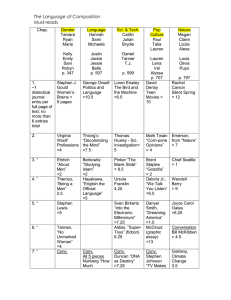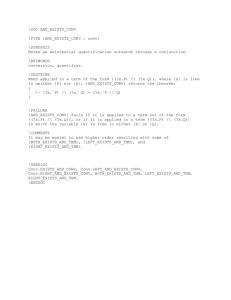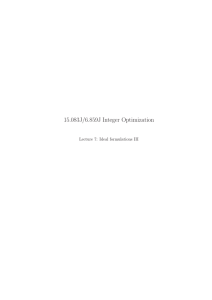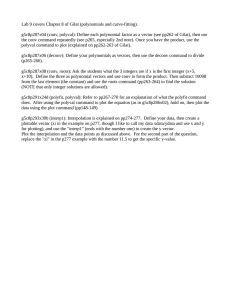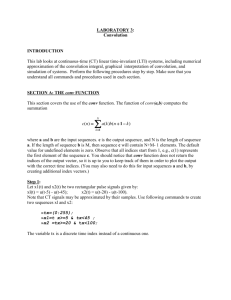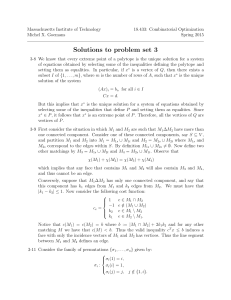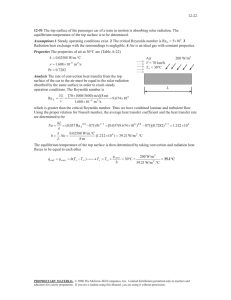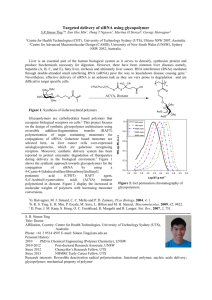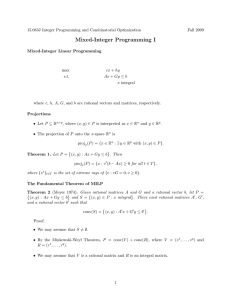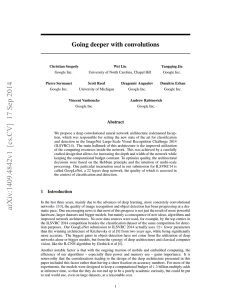Document 13620687
advertisement
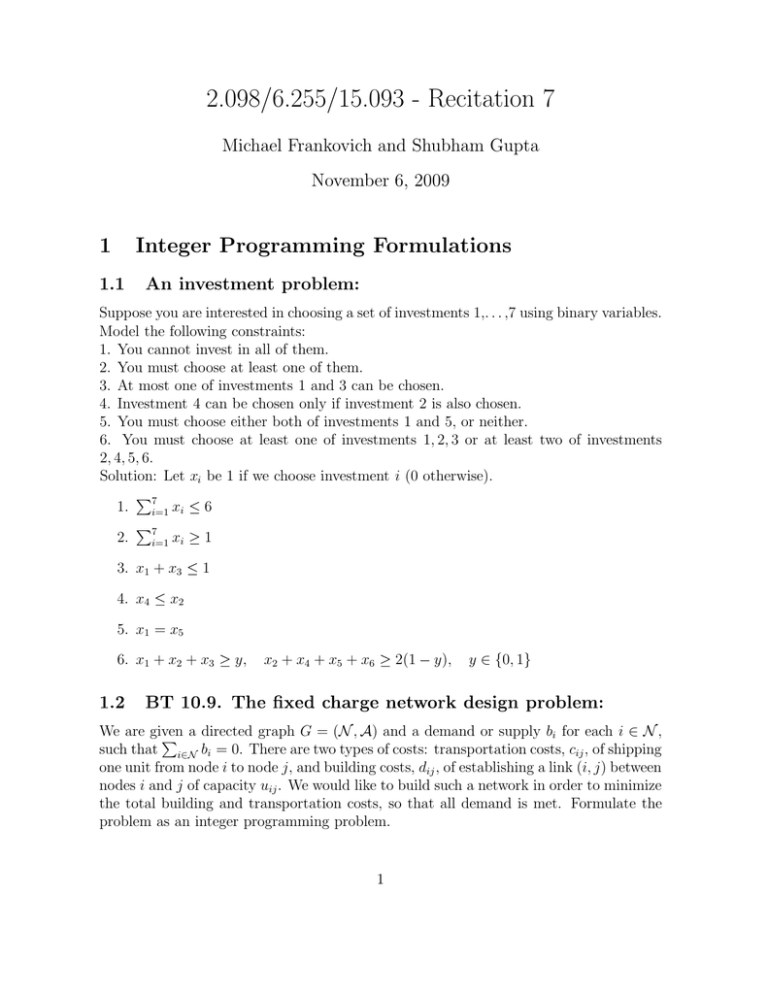
2
2.1
Integer Programming Duality
Lagrangean Duality
Integer Programming problems are hard to solve in general. However, there are some
sets of constraints that can be sovled more efficiently than others. The main idea is to
relax difficult constraints by adding penalties to the cost function instead of imposing
them as constraints.
Consider the primal problem:
min
s/t.
c′ x
Ax ≥ b
x∈X
where X = {x ∈ Z n |Dx ≥ d}. Relax the difficult constraints Ax ≥ b with Lagrange
multipliers p ≥ 0 (if the constraints are equalities, then p is unconstrained), we obtain
the problem:
Z(p) =
s.t.
min c′ x + p′ (b − Ax)
x∈X
Property: Z(p) is a piecewise concave function.
The Lagrange dual problem is written as follows:
ZD = maxp≥0 Z(p)
Theorem:
ZD =
s.t.
min c′ x
Ax ≥ b
x ∈ conv(X)
N.b. X is a discrete set, with a finite number of points, while conv(X) is a continuous
set, in fact a polyhedron. Why? Try drawing these sets for a small example.
We have that the following integer programming weak duality inequalities always hold
(for a minimization problem, of course):
ZLP ≤ ZD ≤ ZIP .
2
2.2
BT Excercise 11.12 (Comparison of relaxations for an as­
signment problem with side constraints)
Note that from weak duality for integer programming problems, it follows that ZLP ≤
ZD1 , ZD2 , ZD3 , ZD4 ≤ ZIP .
Let F = {x ∈ Z n |Dx ≥ d}. Then, we have ZLP = ZD , for all cost vectors c, if and only
if conv(F ) = {x|Dx ≥ d}. Why?
Note the following relations:
�
�n
• FD1 = {x ∈ Z n×n | ni=1 xij = 1, ∀j;
j =1 xij = 1, ∀i}
� �
• FD2 = {x ∈ Z n×n | ni=1 nj =1 dij xij ≥ b}
�
�n �n
• FD3 = {x ∈ Z n×n | nj =1 xij = 1, ∀i;
i=1
j =1 dij xij ≥ b}
�
• FD4 = {x ∈ Z n×n | nj =1 xij = 1, ∀i}
Let PD1 , PD2 , PD3 and PD4 denote the polyhedra corresponding to the LP relaxation of
the constraints in FD1 , FD2 , FD3 and FD4 , respectively. Then the following relations
hold:
• conv(FD1 ) = PD1
• conv(FD2 ) ⊂ PD2
• conv(FD3 ) ⊂ PD3
• conv(FD4 ) = PD4
Why are these true? Well, we always have conv(FDi) ⊂ PDi . And we have equality
when the constraints Dx ≥ d define an integral polyhedron (a polyhedron whose vertices
are all integer points), so conv(F ) = conv({z ∈ Z n |Dx ≥ d}) = conv({x|Dx ≥ d}) =
{x|Dx ≥ d} = PD (the 2nd equality makes use of the fact that the polyhedron is integral).
Hence, it follows that ZLP = ZD1 = ZD4 . Moreover, ZLP ≤ ZD2 , ZD3 ≤ ZIP . Finally,
since conv(FD3) ⊂ conv(FD2), hence ZD2 ≤ ZD3 . Therefore, we have ZLP = ZD1 =
ZD4 ≤ ZD2 ≤ ZD3 ≤ ZIP .
3
MIT OpenCourseWare
http://ocw.mit.edu
15.093J / 6.255J Optimization Methods
Fall 2009
For information about citing these materials or our Terms of Use, visit: http://ocw.mit.edu/terms.
-
1
